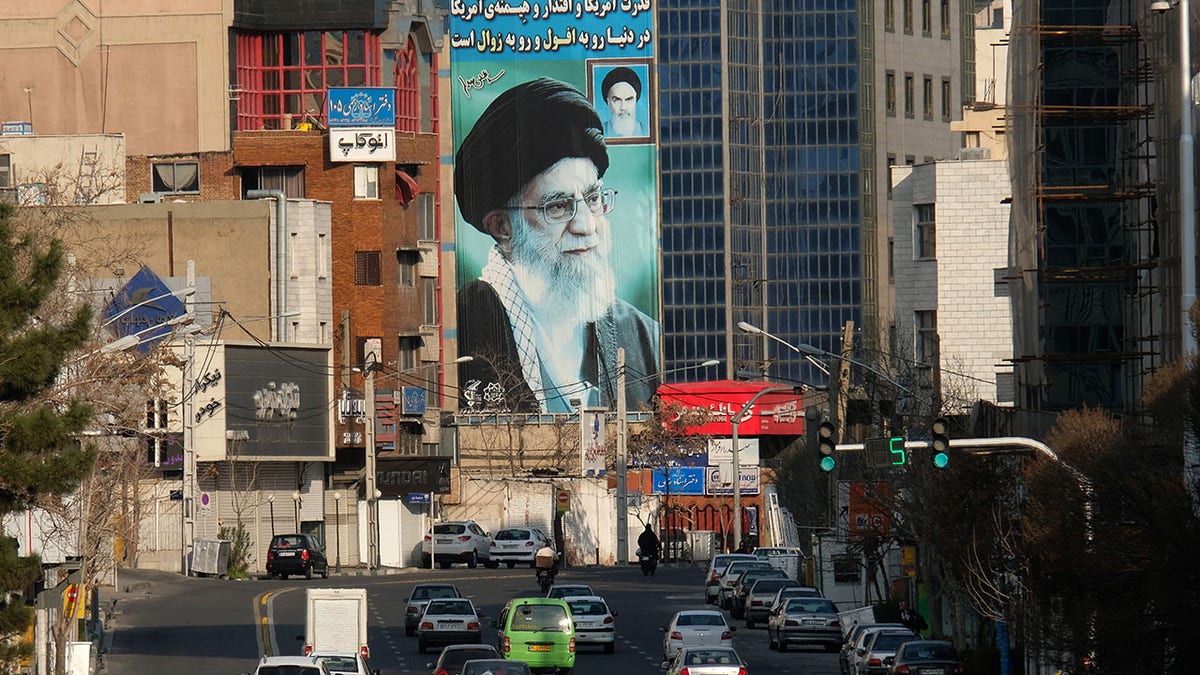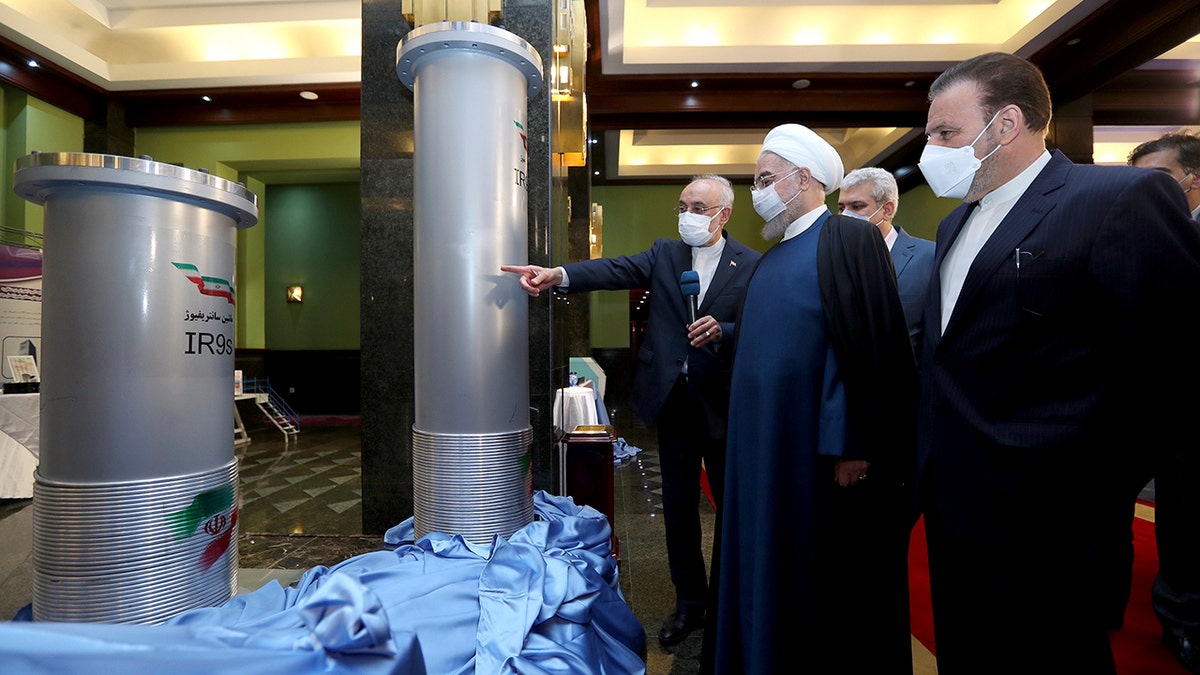John Kirby: 'Clear evidence that Russian military is conducting war crimes'
Pentagon Press Secretary John Kirby on President Biden calling Vladimir Putin a war criminal, Iran negotiations and potential use of chemical weapons by Russia against Ukraine.
After almost a year of stop-and-go talks with Iran to bring it back under a nuclear agreement, the State Department on Tuesday said it remains unclear whether Tehran will ever agree to a deal.
"The jury is still out as to whether we will in fact, be able to achieve a mutual return to compliance with the [Joint Comprehensive Plan of Action] JCPOA," State Department press secretary Ned Price said. "An agreement of this sort is neither imminent nor is it certain."

A huge mural of Ayatollah Seyyed Ali Khamenei Iran's Supreme Leader painted next to a smaller one of Ayatollah Ruhollah Khomeini (R) seen on Motahari street on March 8, 2020 in Tehran, Iran.
Price said that while the chief goal is to reach an agreement with Iran to block it from possessing a nuclear weapon, the White House has a contingency plan should the U.S. and JCPOA partner nations fail to broker a deal.
Officials said earlier this month they believed they were in the final hours of reaching a deal before Russia stalled talks to bargain for sanction relief relating to its illegal invasion of Ukraine.
Moscow reportedly demanded sanction immunity in all future trade with Iran.
The U.S. countered Russian demands by saying Moscow had not and would not be sanctioned "for undertaking or participating in nuclear projects that are part of the JCPOA."

President Hassan Rouhani, second right, listens to head of the Atomic Energy Organization of Iran Ali Akbar Salehi while visiting an exhibition of Iran's new nuclear achievements in Tehran, Iran, in April (Iranian Presidency Office/AP)
Price told reporters last week that the U.S. would not allow the nuclear deal to become "an escape hatch" for Russian sanctions, but refused to say what the current hold up in negotiations are.
CLICK HERE TO GET THE FOX NEWS APP
"We are still working through a number of difficult issues," Price told reporters Tuesday. "As I said before, the onus is on Tehran to make difficult decisions."
Price refused to outline what the "difficult decisions" for Tehran entailed but said, "We are still at a point where if those decisions are made, we could reach a mutual return to compliance very soon."














































